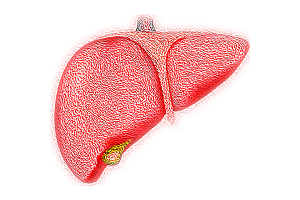Advanced Liver Cancer (Stage 4 Liver Cancer)
- Updated on: Jul 8, 2024
- 3 min Read
- Published on Feb 21, 2020

The hepatocellular carcinoma begins in hepatocytes which is the main cell of the liver. This type of cancer is caused by cirrhosis, a scarring of the liver, infection with the hepatitis B or C viruses, and hemochromatosis.
What is Tumor Staging?
The stage of a cancer is a description of the extent of cancer that has spread. The stage often takes into account the size of a tumor, how deeply it has penetrated, whether it has invaded nearby organs, how many lymph nodes it has spread to, and whether it has spread to other organs.
Staging of cancer is the most important predictor of survival, and treatment of cancer is primarily determined by staging. For liver cancers, besides the tumor size, liver function and involvement of the portal vein are important for determining staging.
How Are Stages Determined for Cancer?
The clinical staging is based on the results of tests done before surgery, which include:
- X-rays
- Lab tests
- CT, MRI, PET or nuclear scans
- Ultrasounds
- Biopsy
More: Real Life Experiences About Coping With Cancer
The Staging Criteria
The criteria for staging cancer are based on three primary factors:
T (Tumor): This describes the number and size of the original tumor
N (Node): Indicates whether cancer is present in the nearby lymph nodes
M (Metastasis): This indicates whether cancer has spread to distant parts of the body
4th Stage Liver Cancer
The cancer that has spread to nearby lymph nodes and has grown into nearby blood vessels or organs is referred to as stage 4 liver cancer. Advanced liver cancer does not travel to distant organs, but when it does, it is most likely to spread to other parts of the body.
Stage 4 liver cancer is further divided into stage 4A and Stage 4B
Stage 4A Liver Cancer
This type of cancer can be of any size and can be more than one. It may have grown into blood vessels or to the other organs around the liver. It has spread to lymph nodes but not to the other parts of the body.
Stage 4B Liver Cancer
This type of cancer may or may not have spread into lymph nodes, but has spread to another part of the body such as the lungs or bones. Invasion into nearby blood vessels may or may not be evident.
Symptoms of Stage 4 Liver Cancer
- Easy bleeding and bruising
- Yellowing of skin and eyes
- Intense itching
- Loss of appetite
- Nausea
- Excessive swelling due to fluid buildup in the abdomen and legs
- Problems with concentration and memory
Survival With Stage 4 Liver Cancer
The survival usually depends on the size of cancer and how much it has spread. The rates of survival are higher for people who can undergo surgery to remove their cancer, regardless of the stage. For example, there are studies showing that patients with small, removable cancer who do not have cirrhosis or other serious health problems are likely to do well if their cancers are removed.
The median survival for stage 4 liver cancer without treatment is less than 4 months. There are very few treatment options that work well for stage 4 liver cancers. Doctors and specialist nurses only treat any symptoms that the patient may develop.
More: Liver Cancer Ultrasound
Treatment for Stage 4 Liver Cancer
When cancer is diagnosed at stage 4, it’s usually too late to slow down the spread of cancer; therefore treatment focuses on relieving thesymptoms of pain and discomfort mainly.
The treatment of liver cancer causes physical symptoms and side effects, which can be emotional, social, and have financial effects too. The managing of these effects is termed as palliative care or supportive care. This is an important part of the care that is included along with treatments that intend to slow, stop, or eliminate the spread of cancer.
Palliative care usually focuses on improving how you feel during treatment by managing symptoms and supporting patients and their families with other needs. This type of care can be received by any person, regardless of age, type, and stage of cancer. Patients receiving palliative care along with treatment for cancer have less severe symptoms, a better quality of life, and also they are more satisfied with the treatment.
Palliative Treatments Include –
- Medications
- Nutritional changes
- Relaxation techniques
- Emotional and spiritual support
- Some mind-body therapies
Patients who have stage 4 liver cancer may want to consider a type of palliative care which is called hospice care. Hospice care is a type of palliative care that provides the best possible quality of life for people who are near the end of life.
Patients and their family members are encouraged to talk with the health care team about hospice care options, which include hospice care at home, a special hospice center, or other health care locations. Nursing care and special equipment at home can make a workable option for many families.












